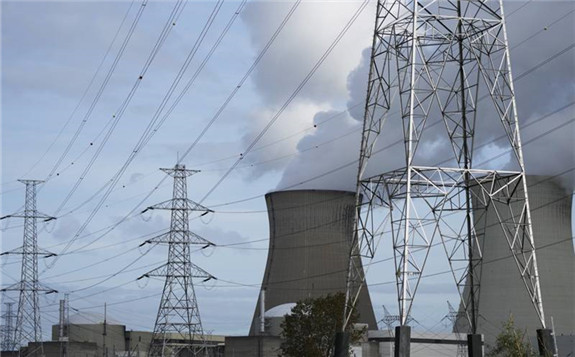France has suffered a spike in electricity prices after its nuclear-reliant grid was stretched by the temporary closure of four reactors.

The reactors, which are not expected to re-open until well into next year, were taken offline after faults were discovered during safety checks.
French prices soared to their highest since 2009, putting them among the highest in Europe. It adds to a wider energy squeeze, with Europe at the mercy of cold weather and political developments in Russia, its main gas supplier.
A pressure group called Ecology Action called for the resignation of Energy Minister Barbara Pompili over the closures, which have forced France to import electricity produced from fossil fuels.
Ms Pompili is “directly responsible for the current fiasco”, the group said, after overseeing the closure of two other reactors last year. Further outages are expected in January.
The minister said there was no danger of blackouts in France because of contingency plans to reduce voltage and energy use. She asked French electric company EDF, which runs 56 nuclear reactors in France, whether it could restart its offline reactors sooner than planned.
Safety inspectors found faults in two reactors at the Civaux power plant, and another two were switched off at the Chooz facility because they were the same type of reactor.
France gets about 70 per cent of its electricity from nuclear power. The setback comes as it plans a new generation of nuclear reactors and leads a push to have them classified as climate-friendly by the EU.
While supporters of nuclear power regard it as reliable and virtually carbon-neutral, opponents say it is risky and produces unacceptable radioactive waste.
Germany, the biggest player in the anti-nuclear camp, will this week close three of its last six reactors ahead of its final atomic exit in 2022.
Much of Germany’s electricity comes from coal, adding to France’s concerns when it is forced to turn to its neighbour for power.
Elsewhere, in Britain, the head of energy supplier Ovo said rising gas prices could be an “enormous crisis for 2022” amid fears of runaway household bills.
Stephen Fitzpatrick told ministers to show more urgency in curbing an estimated £4 billion ($5.36bn) rise in total costs to consumers.
“We haven't seen any action from the government or from the regulator,” he told the BBC. “There's an acceptance that there's a problem, but nowhere near enough urgency to find a solution.”